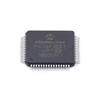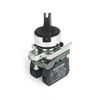After many months of discussing the shortage of semiconductor components, industry analysts began to talk more and more insistently about the decline in demand for core products in several market segments at once. Personal computers and smartphones of the mass price segment were among the depressed product categories, but the demand for automotive components is still difficult to meet.
TechInsights analysts even compared the behavior of market participants with the actions of consumers who, at the dawn of the pandemic, actively bought toilet paper “in reserve”, only after a certain moment they saw through and appreciated the very absurdity of such purchases. The situation with electronic components is beginning to resemble the very deposits of toilet paper that some consumers formed in the early stages of the pandemic.
Prior to this, many manufacturers of complex electronic devices practiced prompt purchases of components, minimizing the shelf life of components in the warehouse and not burdening themselves with “emergency stocks”. This made it possible to reduce the cost of storing warehouse stocks. When there were interruptions in the supply of chips, manufacturers were forced to form increased stocks of components, this only fueled demand and exacerbated the deficit. Now, when end consumers show low interest in buying new PCs and low-cost smartphones, manufacturers are faced with overstocking of warehouses.
Baird experts argue that manufacturers of consumer electronics and low-cost smartphones will suffer the most at this stage of the market transformation. NVIDIA will also feel the effect of reduced demand for its own products, partly caused by the fall in demand for cryptocurrency and the means of its extraction, which are video cards.
According to Wedbush analysts, Apple and TSMC will suffer the least in this situation. The first produces quite expensive smartphones that continue to enjoy stable demand, and the second will be able to switch from less profitable components to more profitable ones. At least, the demand for power electronic elements is still high, but components for radio frequency modules of inexpensive smartphones have ceased to be in demand. According to Jefferies, the amount of inventory of contract electronics manufacturers in the first quarter updated the historical record. The automotive segment, by inertia, will continue to buy chips in increased quantities for some time, but this trend is inevitably declining.





 2022-09-19
2022-09-19 


